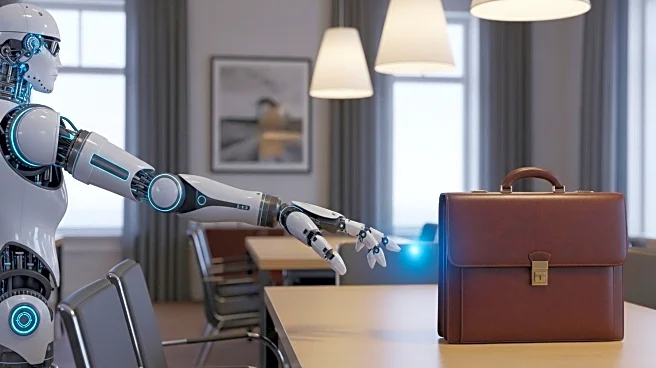What's Happening?
Sam Altman, CEO of OpenAI, has shared insights on the evolving role of artificial intelligence (AI) in the workforce. Altman predicts that AI could replace up to 40% of current work tasks, emphasizing the importance of regulation and safety in AI development. He discusses the potential of superintelligence to transform work and discovery, highlighting the need for careful management to ensure beneficial outcomes. Altman's comments reflect ongoing debates about AI's role in reshaping industries and the workforce, as well as the ethical considerations surrounding its deployment.
Why It's Important?
The potential for AI to replace a significant portion of work tasks has profound implications for the U.S. economy and labor market. Industries may experience shifts in employment patterns, with some jobs becoming obsolete while new opportunities emerge in AI-related fields. This transition could affect economic stakeholders, including workers, businesses, and policymakers, who must adapt to changing demands and skill requirements. The emphasis on regulation and safety underscores the need for frameworks that balance innovation with ethical considerations, ensuring AI's benefits are maximized while minimizing risks.
What's Next?
As AI continues to advance, stakeholders will likely engage in discussions about regulatory measures and workforce adaptation strategies. Policymakers may consider legislation to address the impact of AI on employment and ensure equitable access to new opportunities. Businesses may invest in reskilling programs to prepare employees for AI-driven changes. The broader societal implications of AI's integration into the workforce will remain a focal point for ongoing debate and policy development.








